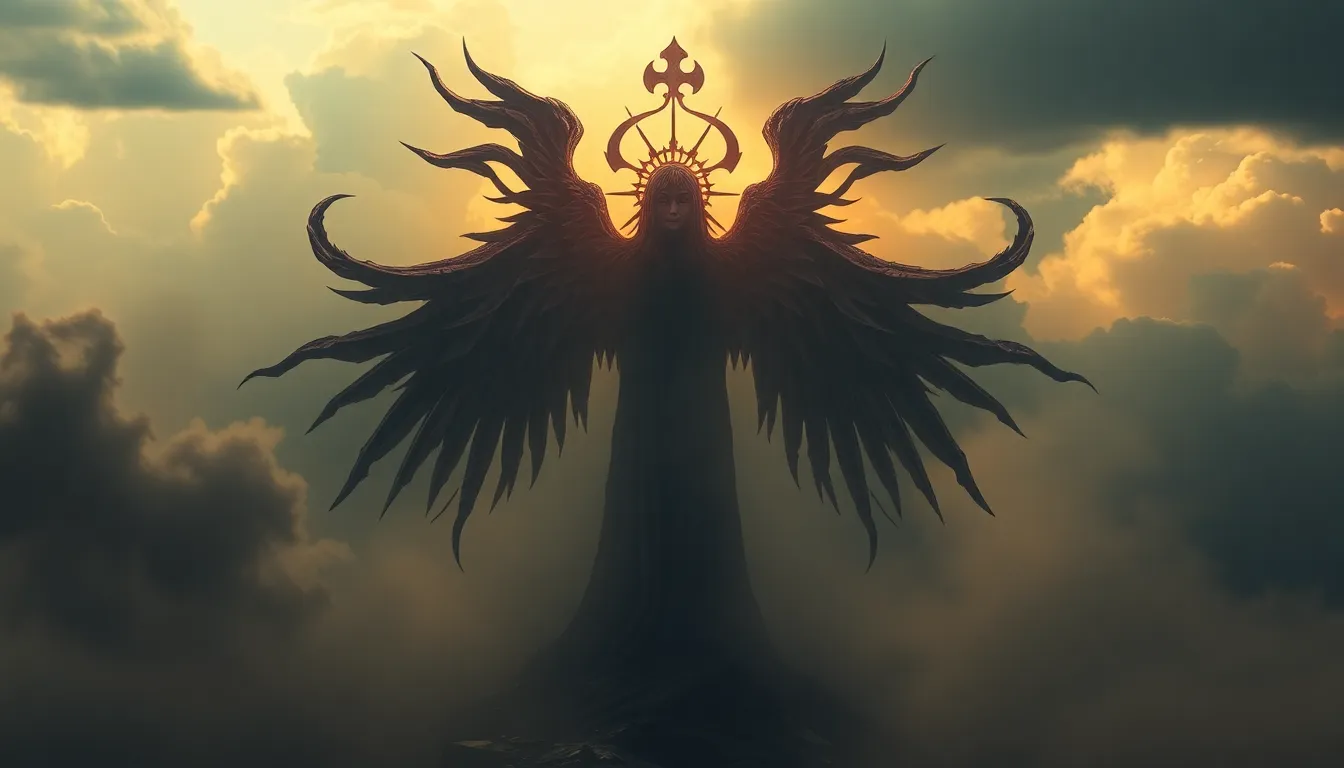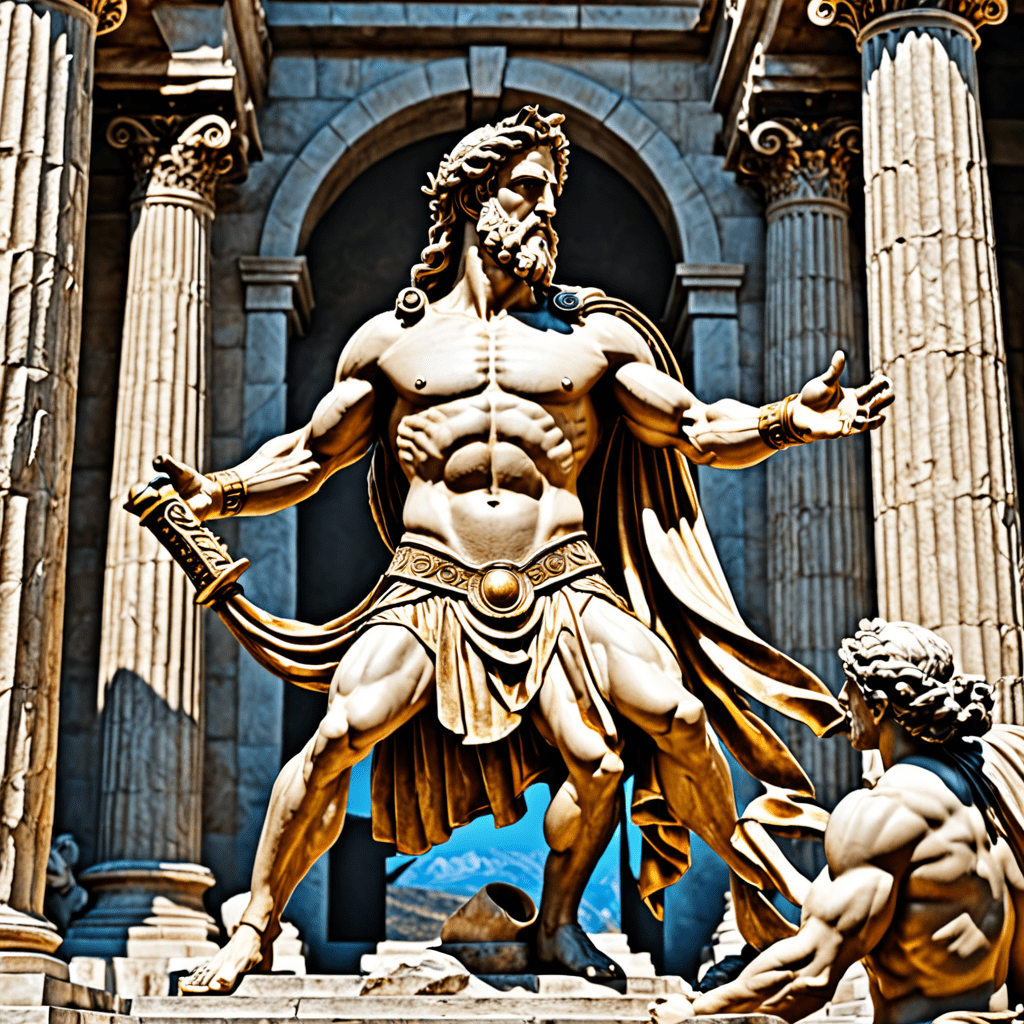Indonesian Mythology: Unveiling Sacred Rituals
Indonesia, an archipelago of over 17,000 islands, is home to a rich tapestry of myths and legends, woven intricately with sacred rituals that have shaped its cultural landscape for centuries. From the mystical mountains to the vast oceans, Indonesian mythology is deeply rooted in the natural world, reflecting a profound reverence for the divine and the ancestral spirits. This article explores the fascinating world of Indonesian mythology, delving into the heart of its sacred rituals and their enduring influence on the lives of Indonesians.
The Origins and Evolution of Indonesian Mythology
Indonesian mythology is a complex and multifaceted system, influenced by a blend of indigenous beliefs, Hindu-Buddhist traditions, and Islamic influences. The earliest forms of Indonesian mythology date back to prehistoric times, reflecting animistic beliefs, where spirits inhabited the natural world. These ancient myths were passed down through generations, evolving over time and incorporating new ideas and influences.
The arrival of Hinduism and Buddhism in Indonesia, around the 1st century CE, introduced new deities and concepts into the local belief system. These influences are evident in the epic tales of the Ramayana and Mahabharata, which have been adapted and reinterpreted in Indonesian literature and folklore. The spread of Islam, beginning in the 13th century, further enriched the tapestry of Indonesian mythology, adding new narratives and rituals. However, traditional beliefs and practices persisted, often merging with Islamic interpretations.
The Divine Realm and its Manifestations in Rituals
Indonesian mythology envisions a complex divine realm populated by a vast array of deities, spirits, and mythical beings. These celestial figures influence the natural world and the lives of humans, demanding respect and reverence. Rituals, therefore, act as a bridge between the human and divine realms, enabling communication and seeking divine favor.
The most prominent deities in Indonesian mythology are often associated with the forces of nature. Batara Guru, the king of the gods, symbolizes strength and power, while Dewi Sri, the goddess of rice, is revered for her role in fertility and abundance. Other important deities include Brahma, Vishnu, and Shiva, borrowed from Hinduism, representing the creative, preserving, and destructive forces of the universe. These deities are invoked through various rituals, including offerings of food, flowers, and incense, and ceremonies held at sacred sites.
Ancestor Worship and the Sacred Lineage
Ancestor worship plays a central role in Indonesian mythology, emphasizing the importance of family, lineage, and the connection between the living and the dead. Ancestors are believed to possess a spiritual power that can influence the lives of their descendants. Their spirits are venerated and appeased through offerings of food, prayers, and special ceremonies held at ancestral tombs or family shrines.
Ancestor worship also plays a crucial role in maintaining social order and continuity. Respect for ancestors reinforces family ties and instills a sense of responsibility towards future generations. These rituals help preserve the cultural heritage and traditions passed down through generations, ensuring the vitality of the community.
Nature Spirits and the Reverence for the Natural World
Indonesian mythology is deeply intertwined with the natural world, recognizing the presence of spirits inhabiting mountains, rivers, forests, and oceans. These nature spirits are believed to possess immense power and can influence the well-being of humans and the environment. Rituals aimed at appeasing these spirits are essential for maintaining harmony with nature.
Ceremonies are often performed at sacred sites, such as natural springs, ancient trees, or volcanic craters. Offerings of food, tobacco, and other symbolic gifts are presented to the spirits, seeking their blessing and protection. This reverence for nature is deeply embedded in Indonesian culture, shaping perspectives on environmental conservation and sustainability.
The Ritual Cycle: Birth, Life, and Death
Rituals in Indonesian mythology mark significant life events, from birth to death, providing structure and meaning to the human experience. Birth ceremonies, often elaborate affairs, welcome the newborn into the world and seek divine blessing for their future. Coming-of-age rituals mark the transition from childhood to adulthood, signifying the individual's acceptance of responsibility and social roles.
Death rituals are particularly important, emphasizing the importance of honoring the deceased and ensuring their safe passage into the afterlife. Elaborate funeral ceremonies, with offerings, prayers, and symbolic gestures, are conducted to appease the spirit of the departed and prevent them from becoming malevolent beings. These rituals reinforce the connection between the living and the dead, providing comfort and reassurance during times of loss.
The Role of Ritual in Maintaining Cosmic Harmony
Indonesian mythology views rituals as essential for maintaining cosmic harmony, the balance that ensures the well-being of both humans and the natural world. Rituals are seen as a way to appease the deities, ancestors, and spirits, ensuring their favor and preventing negative consequences. This belief stems from the idea that the universe is interconnected, and any disruption in this balance can lead to chaos and misfortune.
For instance, the ritual of "Selamatan," a celebratory feast often held after a significant event, embodies this concept. It serves as a way to express gratitude to the spirits and deities for their blessings, while also strengthening the community's bonds. Such rituals reinforce the idea that societal harmony and well-being are intrinsically linked to maintaining a healthy relationship with the divine and natural realms.
Shamanic Practices and the Spirit World
Shamanism plays a significant role in Indonesian mythology, involving individuals who act as intermediaries between the human world and the spirit realm. Shamans possess the ability to communicate with spirits, heal illnesses, and influence events. They often enter a trance state during rituals, allowing them to access the spirit world and seek guidance from deities, ancestors, and nature spirits.
These practices are often associated with traditional healing methods, using herbs, rituals, and prayers. Shamanic healers are highly respected in many Indonesian communities, providing spiritual guidance and assistance in times of need. Their role underscores the importance of understanding and respecting the spiritual dimensions of the natural world in Indonesian mythology.
The Influence of Hinduism and Buddhism on Indonesian Rituals
Hinduism and Buddhism have profoundly influenced Indonesian rituals, introducing new deities, concepts, and practices. The arrival of Hinduism brought with it the worship of Shiva, Vishnu, and Brahma, the Trimurti, representing the cosmic forces of creation, preservation, and destruction. These deities were incorporated into existing belief systems and became central figures in various rituals.
Buddhism introduced the concept of karma and rebirth, influencing beliefs about the afterlife. Buddhist rituals, such as meditation and chanting, became part of Indonesian spiritual practices. The fusion of these traditions created a blend of indigenous beliefs and Hindu-Buddhist influences, enriching the tapestry of Indonesian mythology and rituals.
Modern Interpretations and the Continuity of Ritual Traditions
Despite the influence of modernization and globalization, traditional Indonesian rituals continue to be practiced in contemporary society, often with modern interpretations. While some rituals have been adapted to fit changing cultural contexts, others remain deeply rooted in tradition. These rituals serve as a powerful reminder of the enduring influence of Indonesian mythology and its connection to the past.
In recent times, there has been a growing interest in resurrecting and preserving traditional rituals. This resurgence is fueled by a desire to connect with one's cultural heritage and to find meaning in the face of globalization. The continuity of these rituals provides a sense of identity and belonging for Indonesians, linking them to their ancestors and the rich tapestry of their cultural heritage.
The Significance of Rituals in Contemporary Indonesian Society
Rituals remain a vital part of contemporary Indonesian society, serving multiple functions beyond their religious significance. They provide a sense of community, reinforce social norms, and offer opportunities for cultural expression. Rituals also play a crucial role in coping with life's transitions, providing comfort and guidance during times of change and uncertainty.
In a rapidly changing world, Indonesian rituals offer a sense of stability and continuity, serving as a bridge between the past and the present. They embody the wisdom and traditions passed down through generations, offering a framework for understanding the complexities of life and the interconnectedness of the natural and spiritual worlds.
FAQ
- What are some of the most common Indonesian rituals? Common rituals include "Selamatan," which is a celebratory feast, "Ngaji," a study of Islamic scriptures, and "Ngaben," a Balinese cremation ceremony.
- What is the significance of offerings in Indonesian rituals? Offerings are symbolic gestures of respect and gratitude towards deities, ancestors, and spirits. They are intended to appease these supernatural beings and ensure their favor.
- How do rituals play a role in maintaining Indonesian cultural identity? Rituals are a powerful reminder of cultural heritage, connecting individuals and communities to their ancestors and the rich traditions of their past.
- How has modern society influenced Indonesian rituals? Modernization has led to some adaptations of traditional rituals, while others continue to be practiced in their original form. This reflects the ongoing dialogue between tradition and modernity in contemporary Indonesian society.
- What is the future of Indonesian rituals? While Indonesian rituals may continue to evolve and adapt to changing times, their significance as a vital part of Indonesian culture is likely to endure. They offer a sense of community, meaning, and connection to a rich cultural heritage.



